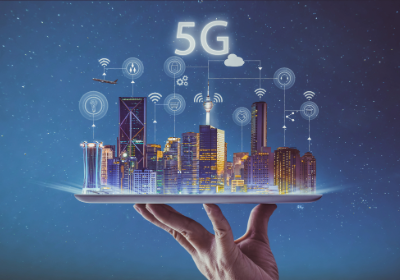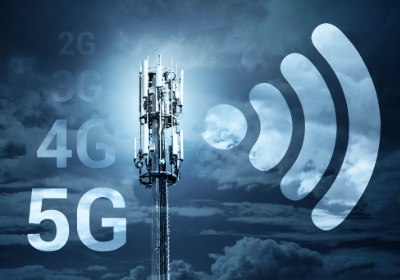Introduction: Understanding the Potential of 5G Technology
The advent of 5G technology has sparked a wave of excitement and anticipation across industries worldwide. With its promise of ultra-fast speeds, low latency, and massive connectivity, 5G is set to revolutionize multiple sectors, transforming the way we communicate, live, and work. As the next generation network, 5G holds immense potential to drive innovation, enhance productivity, and unlock new possibilities.
Transforming Communication: How 5G is Revolutionizing the Telecommunications Industry
One of the most significant impacts of 5G technology is its transformative effect on the telecommunications industry. With speeds up to 100 times faster than 4G, 5G enables seamless streaming, high-quality video calls, and real-time data transfer. This enhanced connectivity will not only improve the user experience but also open up new opportunities for businesses.
Telecommunication companies are already capitalizing on 5G to offer innovative services. For instance, Verizon’s 5G Home service provides ultra-fast broadband internet to homes, eliminating the need for traditional wired connections. This not only enhances internet speeds but also enables the integration of smart home devices, creating a more connected and efficient living environment.

Moreover, 5G technology is set to revolutionize the way we communicate through augmented reality (AR) and virtual reality (VR). With its low latency and high bandwidth, 5G enables immersive experiences, allowing users to interact with virtual objects and environments in real-time. This has significant implications for industries such as gaming, education, and entertainment, where AR and VR can enhance learning, training, and entertainment experiences.
Empowering Smart Cities: The Impact of 5G on Urban Infrastructure and Services
The potential of 5G extends beyond communication, as it has the power to transform entire cities into smart, connected ecosystems. With its ability to support a massive number of devices simultaneously, 5G enables the Internet of Things (IoT) to flourish, connecting everything from streetlights to transportation systems.
In smart cities, 5G can revolutionize urban infrastructure and services. For example, with 5G-enabled sensors and real-time data analysis, cities can optimize traffic flow, reduce congestion, and improve air quality. Smart streetlights equipped with 5G connectivity can adjust their brightness based on real-time data, saving energy and enhancing safety. Additionally, 5G can enable remote monitoring of critical infrastructure, such as bridges and pipelines, ensuring timely maintenance and preventing disasters.
Furthermore, 5G can enhance public services, such as healthcare and emergency response. With its low latency and high reliability, 5G enables real-time telemedicine, allowing doctors to remotely diagnose and treat patients. Emergency services can also benefit from 5G’s capabilities, as it enables faster response times and improved coordination during emergencies.
Unlocking Innovation: Exploring the Disruptive Potential of 5G in Healthcare, Manufacturing, and Transportation
The disruptive potential of 5G extends to various industries, including healthcare, manufacturing, and transportation. In healthcare, 5G can revolutionize patient care by enabling remote surgeries, real-time monitoring of vital signs, and telemedicine. Doctors can perform surgeries from miles away using robotic arms controlled through 5G networks, reducing the need for travel and improving access to specialized care.
In manufacturing, 5G can enhance productivity and efficiency through the implementation of smart factories. With its low latency and high reliability, 5G enables real-time monitoring of production lines, predictive maintenance, and autonomous robots. This not only improves operational efficiency but also reduces costs and enhances worker safety.
In the transportation sector, 5G has the potential to revolutionize autonomous vehicles and smart transportation systems. With its low latency and high bandwidth, 5G enables real-time communication between vehicles, traffic lights, and infrastructure, enhancing safety and efficiency. Autonomous vehicles can communicate with each other and make split-second decisions based on real-time data, reducing accidents and congestion.
In conclusion, 5G technology holds immense potential to revolutionize multiple industries. From transforming communication and empowering smart cities to unlocking innovation in healthcare, manufacturing, and transportation, 5G is set to reshape the way we live and work. As the world embraces the power of 5G, we can expect a future of enhanced connectivity, efficiency, and innovation.






